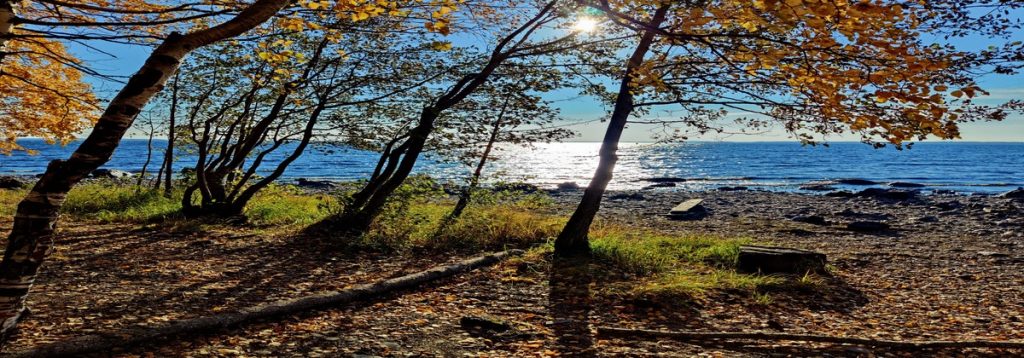Panels

Chair: Minna Tanskanen, Itä-Suomen yliopisto
Panelists: Olli Ruth, Helsingin yliopisto; Sanna Mäki, Turun yliopisto; Leo Nikkonen, Itä-Suomen yliopisto; Hanna Reunanen, Itä-Suomen yliopisto
Panel language: Suomeksi
Yliopistojen opiskelijavalintaa uudistetaan voimakkaasti. Toukokuussa 2023 julkistettiin todistusvalinnan pisteytysesitys, ja yliopistot päättävät uudesta pisteytyksestä elokuun 2023 aikana. Seuraavaksi uudistushankkeessa keskitytään valintakoevalinnan kehittämiseen, ja myös maantieteen yhteisvalinnasta on pyydetty edustaja asiantuntijatyöryhmään, joka aloittaa työskentelynsä nyt syksyllä. Maantiede on jo tähän mennessä päässyt kehitystyössä varsin näyttävästi esille, ja yhteisvalinnan kokemuksille on annettu arvoa. Arvokasta on myös se, että maantieteen paikka on nyt tunnistettu luonnon- ja yhteiskuntatieteellisten alojen rajapinnalle.
Paneelissa esitellään vuonna 2020 aloitettu maantieteen yhteisvalinta ja avataan yhteisvalinnasta tähän mennessä kertyneitä kokemuksia. Paneelissa esitellään myös todistusvalinnan uudet pisteytysmallit ja visioidaan valintakoevalinnan tulevaisuutta maantieteen näkökulmasta.
Chair: Mikko Joronen, Tampere University
Panelists: Wassim Ghantous, Tampere University; Tiina Järvi, Tampere University; Mikko Joronen, Tampere University
Panel language: English
This session offers a screening of a research documentary “Visiting the Dead” (2023). The documentary follows Palestinian landowners claims for land under the settler colonial regime, particularly of accessing and cultivating the lands annexed for Israeli settlement expansion purposes at West Bank. It focuses particularly on Palestinian landowners’ annual visits to their lands now located behind the separation wall and their aims to maintain political claims for lands near Jabal Abu Ghneim (nowadays also known as Har Homa settlement) in Bethlehem (West Bank) through cultivation practices and bodily presence. The document touches on number of themes related to contemporary colonisation processes, ecological degradation, and politics of future-making in Palestine, particularly the state mechanisms of land appropriation, slow erasure of native presence and connection to land, destruction of olive groves and ‘spaciocide’ of Palestinian spaces, and the politics of memory and forms of embodied political claims, which will be further discussed by a panel after the film screening. The documentary (c.30 mins) was conducted as part of the research material collection of the Academy of Finland funded project ‘Present-futures in/of Palestine’ (2019-2023), and is further related to its public dissemination and benefit -sharing practices. The screening is accompanied with introduction, commentaries from panellists, and open discussion on the topic.
Chair: Henrik Nielsen, Itä-Suomen yliopisto/ University of Eastern Finland
Co-chair: Virpi Kaisto, Itä-Suomen yliopisto/ University of Eastern Finland
Panelists: Olga Davydova-Minguet, University of Eastern Finland; Elena Nikiforova, University of Helsinki; Olga Brednikova, Independent researcher; Timo Kumpula, University of Eastern Finland; Veli-Pekka Tynkkynen, University of Helsinki; Paul Fryer, University of Eastern Finland.
Panel language: Suomeksi & English
After Russia’s full-scale attack on Ukraine in February 2022, cooperation with Russian universities, individuals and other partners has been halted. That means research projects have been stopped, articles made difficult to finish let alone publish. The war seems to be at still stand now and the restrictions and sanctions put on interaction with Russia and Russians could be in place for a very long time. In this panel we wish to explore and discuss how we, as geographers, can navigate this new geopolitical reality in which we cannot do fieldwork in Russia or collaborate with Russian partners. We would like to hear from researchers from all areas of geography, physical as well as human, regarding how to conduct geographical research in, as well as about, Russia in the current situation. Some of the questions that we would like to discuss are:
- Is it possible to do (objective) research in Russia?
- Is it ethical to do research in Russia?
- Is it safe for us and Russians if we do fieldwork in Russia?
- Can we study Russia from a distance and still do relevant research?
- Can we publish in Russian based journals?
- Can we cite what is being published in Russian based journals?
- Should we try to keep up relations with Russian partners and colleagues?
- And many more…
We would like to hear what colleagues think about the new reality and how they navigate through it.